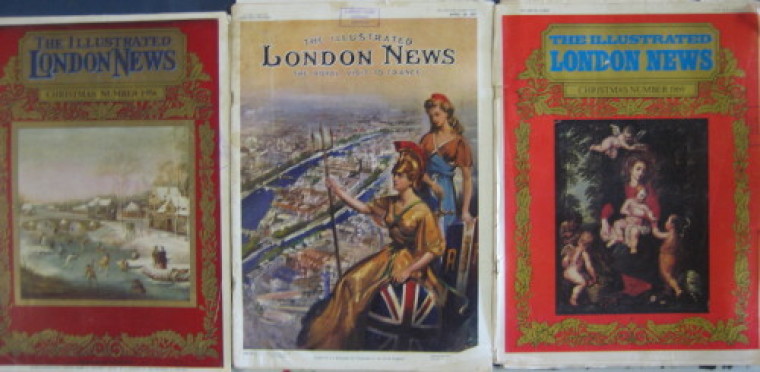
These English colour glossy magazines were the very epitome of the popular reading that British subjects throughout the Empire would be delighted to cast their eye over, and so keep in touch with the latest in London.
London, for many Australians whose forebears were British, was the greatest city on the face of the earth. It was the Royal capital, the financial capital, the political capital, the aristocratic capital, the social capital, the fashion capital and the news capital. It was even considered 'home' by many of my mother's generation, even if they had never been to England (they would have said they had never been 'back' to England.)
Fleet Street is still the most famous 'news' street in the world. Even now, eight major daily newspapers are produced every weekday in London. The glossy magazines were in those days very competitive, and people across the British Commonwealth of nations (the former Empire) longed for them so they could keep up with whatever news they sought.
I can recall the old black and white 1951 movie The African Queen in which Robert Morely played an English clergyman and in one particular scene on this river boat, he is reading one of these 'just arrived' publications.
His specific interest was in the latest 'Bishop' appointments and he commented about these and one in particular most unfavourably. This scene however, epitomises the thousands upon thousands of similar experiences of people reading about their specific interest, from London.
I can imagine my mother opening the pages of these magazines and turning to all her favourite sections and relishing the beautifully displayed photographs.
It all seemed so familiar to me too. I can recall as a small lad my mother laying out these large glossy English magazines on the kitchen table and pouring over them, page by page, and then commenting on them endlessly.
There would be the topic of the week, socialite news, names of the aristocrats and descriptions of the Grand Balls where their daughters were presented to society, reviews and 'crits' of the latest movies and theatre, gossip about the actors and actresses, and of course an 'agony Aunt' section with advice on a range of issues.
Certain names became familiar, and it was almost as if Australian politics and social news and comment had little interest or value for that moment, when she was reading the 'Illustrated London News'. It was all 'England' as I listened to many a story about some great feat that an English Earl or Duke or Knight performed with acclaim and endless praise.
These were special days, when the mail brought the news and rare coloured pictures from the Old Country – at least 6 weeks late by the time we got them. On other days, it would be the Australian daily papers that would be spread out on the table and commented upon – but to me as a little fellow, they were not so attractive without the glossy coloured photos.
As I pondered upon these events all those years ago, I realised how much we're socially geared to the influences we absorb around us in the family home, while we are growing up.
This also applies to our family's approach to Christian teaching.
If there are no Bible stories being read at night to the children and no Sunday School, and no household chit chat about the missionary the family financially helps, those children will grow up without a sense of Christian evangelism.
In order for Christian mission to succeed in the future, these values need to be discussed with children as part of the normal daily conversation. In the car recently with two of our adult children, my wife Delma was extolling the virtues of reading the Bible. This is one of the most important delights of the Christian's life, listening to what the Lord's has for us each day.